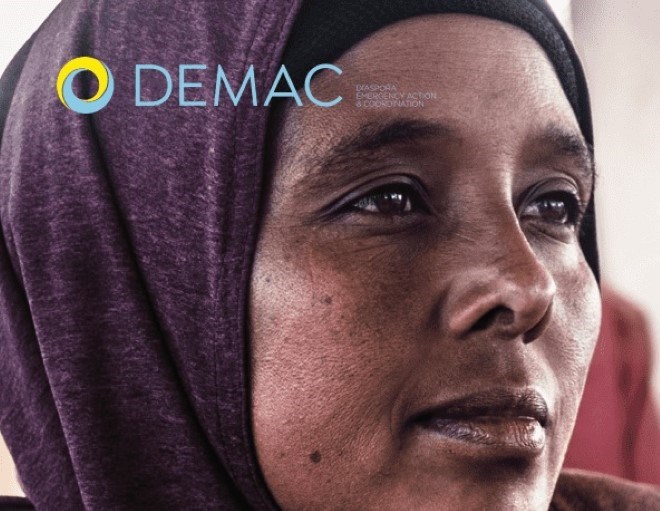
Tuesday July 20, 2021
Click HERE or the image for the full report.
EXECUTIVE SUMMARY
This case study is part of the Diaspora Emergency Action and Coordination Plat- form’s (DEMAC) “Research study on diaspora humanitarian response and engagement”.
Somalia has been plagued by violent conflict for more than 30 years. The devastation caused by the ongoing violence has been compounded by the impact of recurrent climatic shocks which have seen parts of the country ravaged by drought and famine and shattered by periodic floods. With nearly six million people in need of humanitarian assistance in 2021, the institutional humanitarian system carries out multi-sectoral programming in parallel to support provided by emerging actors and Somali social networks including diaspora organizations and groups.
These organizations have become increasingly active in times of larger-scale crises, sometimes blurring their support between ongoing development actions and humanitarian response.
This case study identified 22 Somali diaspora organizations that were regularly active in humanitarian response with the majority based in Europe, followed by North America. Over half have formal structures and set-ups. They have varied operating models. Some were project-based interventions dependent on sporadic diaspora contributions implemented by contacts on the ground with no interaction with institutional humanitarian actors. Others focused on humanitarian and development interventions supported by institutional donors and implemented with local partners who participate in humanitarian coordination mechanisms. A sense of belonging and a charitable obligation are strong motivators which drive diaspora engagement in humanitarian response. Diaspora are alerted to crises through friends and relatives, their own humanitarian networks in Somalia, and social and mainstream media.
Diaspora organizations were involved in multiple areas of intervention and focused mainly on livelihoods, women’s empowerment and education; they were less involved in protection, nutrition, provision of direct health services, livestock treatment and economic development. The majority of their responses were for sudden-onset crises such as floods and cyclones. Displacement due to armed conflict and spikes in drought were other leading reasons for diaspora organizations’ humanitarian response.
